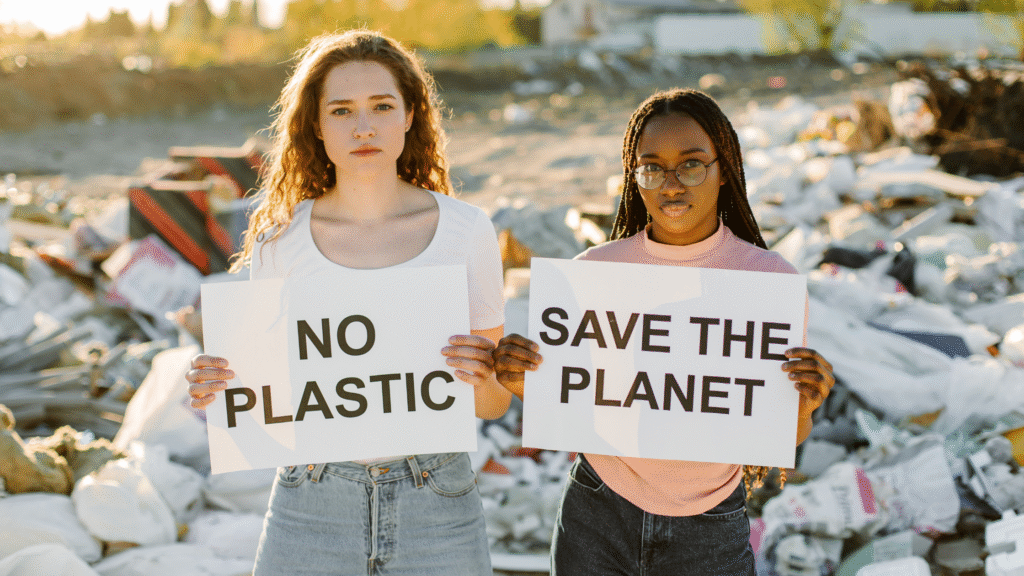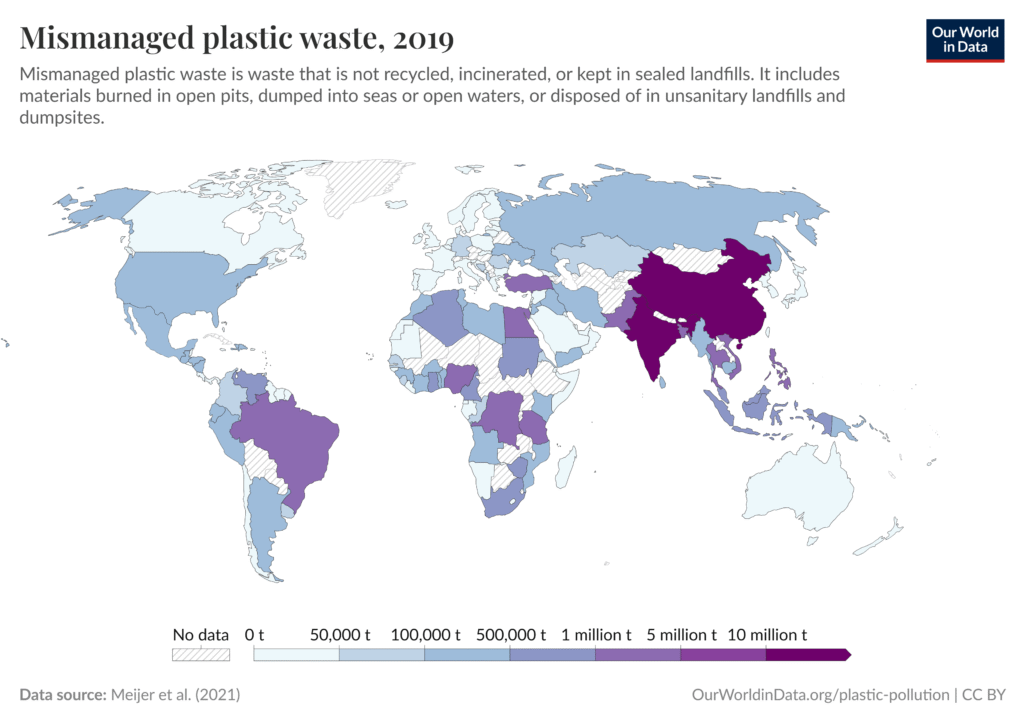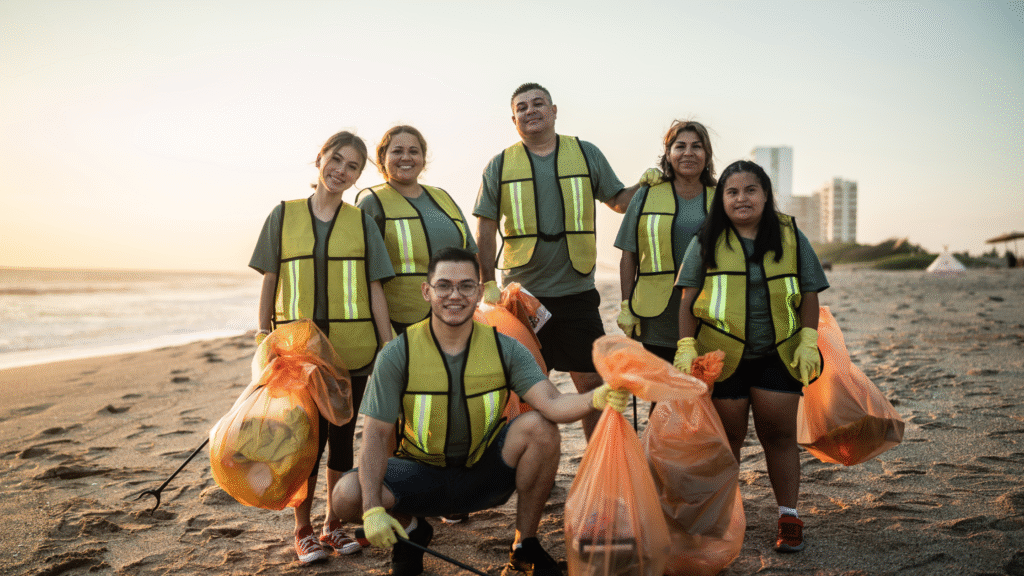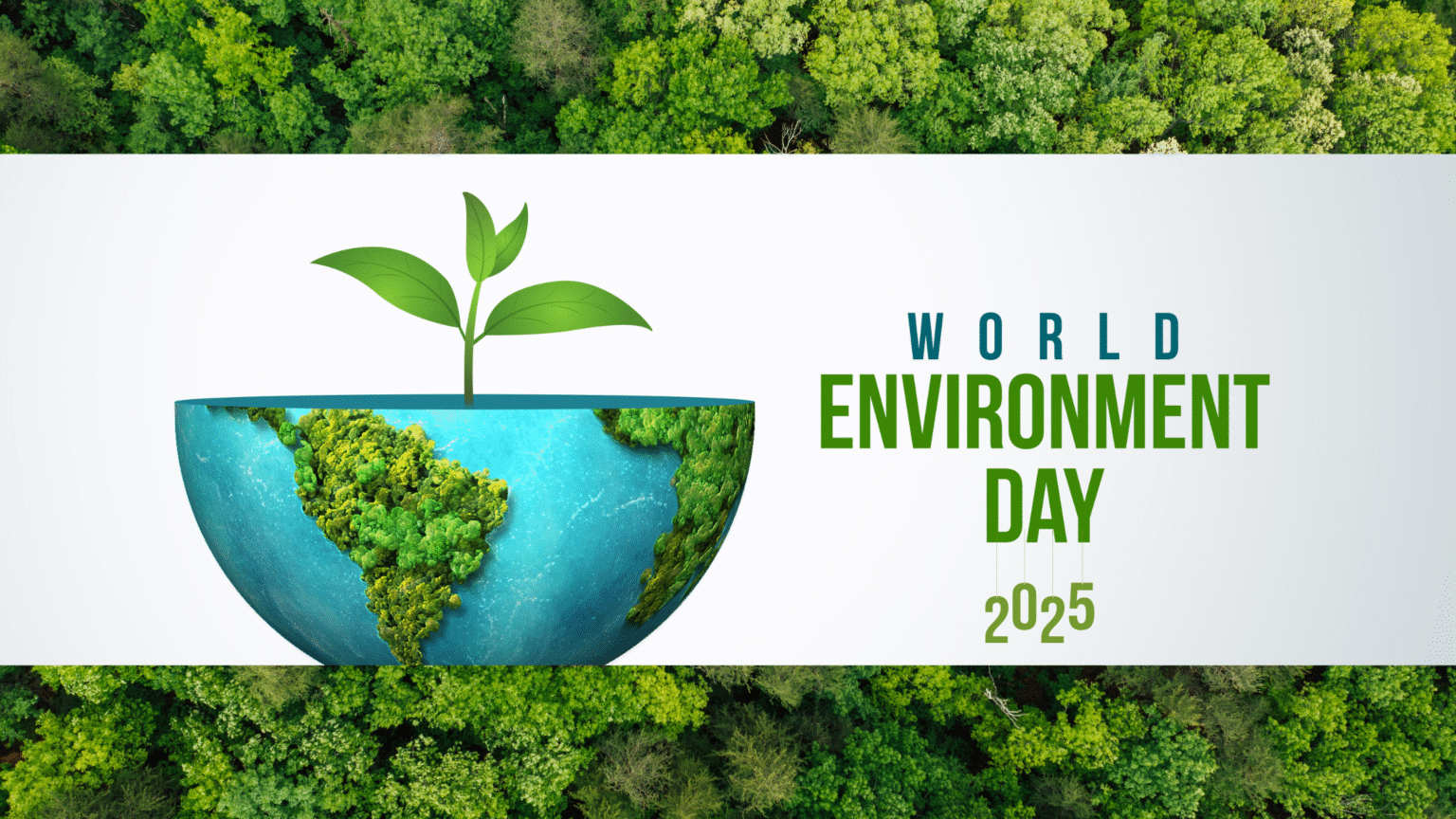The Earth is Calling: Will You Answer?
With International Day of Environment 2025 just around the corner on June 5th, it’s clear we’ve reached a pivotal moment for our planet. It’s now impossible to ignore the growing cries: record-breaking heatwaves scorching our summers, once-common birds becoming a rare sight, and our beautiful oceans struggling to breathe under a tide of plastic.
But here’s the powerful truth: we’re not just observers in this environmental story – we’re the authors of what happens next.
Celebrated annually, the World Day of the Environment serves as a powerful reminder of our shared responsibility to combat climate change and promote eco-friendly practices in our daily lives.”
This year’s World Day of the Environment isn’t just another date on the calendar. It’s a global rally cry, uniting millions across 150 countries in what has become the United Nations’ largest environmental outreach program.
As South Korea prepares to host this year’s celebrations with the pressing theme of Ending Plastic Pollution, we’re about to witness one of the most significant environmental movements of our time.
International Day of Environment: A Global Movement

Since it first began in 1972, this special day has brought together people from every walk of life, in every corner of the globe.
You might wonder, “Why June 5th specifically?” It wasn’t just random but it all started as a groundbreaking idea at the historic Stockholm Conference on the Human Environment, and over the decades, it’s blossomed from a formal government initiative into a truly powerful people’s movement, reaching over 150 countries.
But what makes this day truly stand out isn’t just its long history; it’s the real, tangible change it has sparked. Think about it: since its very first celebration, World Environment Day has been a driving force behind incredible environmental wins.
For instance, the UNEP’s 19-years of leaded petrol campaign helped phase it out in over 175 countries – finally in 2021 – a massive victory for cleaner air! It’s also inspired countless groundbreaking environmental laws worldwide, proving that awareness can indeed fuel decisive action.
Leading this massive global effort is the United Nations Environment Programme (UNEP). Each year, they choose a different host country, turning the spotlight onto specific environmental successes and the challenges still ahead.
In 2025, the eyes of the world will turn to South Korea. They’ll be putting a critical issue front and center: plastic pollution, a pervasive problem taking over World Environment Day 2025 theme.
World Environment Day 2025: Ending Plastic Pollution
The theme of “Ending Plastic Pollution” takes center stage this Environment Day. With South Korea as the host country, the aim is to galvanize action and raise awareness about the urge waste.
Every year, over 300 million tons of plastic waste is produced, and less than 10% of it is recycled. The remaining plastic ends up in landfills, oceans, and other natural habitats, where it takes hundreds of years to decompose.
By 2025, we’re facing a potential deluge of 460 million tonnes of plastic waste every year, a stark reminder of our consumption patterns and recycling shortcomings.
According to the United Nations Environment Programme (UNEP), approximately 8 million tons of plastic waste enter the ocean annually, endangering marine life and disrupting fragile ecosystems.

The Hidden Danger: Microplastics
Plastic pollution isn’t just a problem for distant wildlife; it’s getting far too close to home. That plastic waste we see? Over time, it crumbles into tiny, invisible bits called microplastics. And here’s the unsettling truth: these microscopic particles are now showing up in the food we eat, the water we drink, and even the air we breathe. It’s a stark reminder that what harms the planet can ultimately harm us.
A recent study by Frontiers in Environmental Science revealed that humans consume an estimated 50,000 microplastic particles every year, and that’s likely an underestimate. These tiny particles have been detected in seafood, salt, fruits, and vegetables.
Even worse, recent research has shown the presence of microplastics in the human bloodstream, raising concerns about their potential long-term impact on health.
Actions and Initiatives for 2025: What's Being Done?
It’s easy to feel overwhelmed by the sheer scale of plastic pollution, but here’s the good news: the world is far from giving up. In 2025, the global community is really stepping up its game to tackle this crisis.
On the big international stage, the United Nations is leading the charge for a groundbreaking global treaty. This isn’t just a band-aid solution; it’s about looking at plastic’s entire journey – from the moment it’s created to how it’s eventually dealt with. The goal? To truly rein in plastic waste worldwide.
Governments aren’t waiting around, either. Lots of countries are now saying a strong “no” to single-use plastics – things like flimsy straws, disposable forks, and plastic bags that often mess up our planet. They’re also encouraging (and sometimes pushing!) businesses to use greener methods.
Here are just a few examples of how this is playing out:
– The European Union isn’t just talking about it; they’ve committed to recycling a whopping 55% of plastic packaging by 2030. That’s a serious target!
– India has already put its foot down, banning common single-use plastic items. And they’re not stopping there – they plan to expand these efforts even further.
– Kenya is a true trailblazer, with one of the world’s toughest bans on plastic bags. They have slashed plastic bag use by over 80%! This shows just how much impact strong policies can have.
And it’s not just top-down. Right in our communities, people are organizing cleanups, running awareness campaigns, and holding workshops on eco-friendly living. Social media is a big help, connecting everyone who wants to make a difference.
READ RELATED: Transitioning to Circular Economy – How Businesses, Individuals and Policies are Adapting
How 2025 Aims to Drive Global Action
The 2025 theme, Ending Plastic Pollution, emphasizes the urgent need for systemic change.
It’s not just about addressing the symptoms of the crisis—like cleaning up plastic waste—but tackling the root causes: overproduction and overconsumption of plastics.
The United Nations Environment Assembly (UNEA) has already made historic progress by drafting the world’s first legally binding treaty on plastic pollution, expected to be finalized by 2025. This treaty will address the entire lifecycle of plastics, from production to disposal, promoting a circular economy where materials are reused and recycled rather than discarded.
Key goals of this treaty include:
- Phasing out single-use plastics globally by 2035.
- Reducing virgin plastic production by 50% within the next decade.
- Supporting developing nations with funding and technology to manage plastic waste sustainably.
What You Can Do to Help

It’s true, fixing plastic pollution needs big changes from governments and companies. But guess what? What you do matters a lot. Every little choice you make adds up and helps these bigger efforts.
So, how can you help, especially for Global Environment Day 2025?
• Say “No” to Plastic You Use Once: This is super easy! Carry your own reusable bags for shopping, a water bottle, and even containers for your takeout food. Small choices add up big.
• Join Local Events: Find a cleanup day at your local beach or park, go to a workshop about eco-friendly living, or join a group raising awareness. It’s a great way to help and meet people!
• Speak Up for Change: Your voice has power. Support new rules that ban single-use plastics or help businesses be more green. A quick email or signing a petition can make a difference.
• Learn and Teach Others: The more people who know about the plastic problem, the faster we can solve it. Learn what you can, then share it with friends and family. Even simple facts can open people’s eyes.
• Pick Green Brands: When you buy things, try to choose companies that care about the planet. Support businesses that use eco-friendly stuff or less packaging. Your money can push them to do better!
Stopping plastic pollution won’t be easy, but we can do it if everyone — people, communities, businesses, and governments — works together.
As we celebrate World Environment Day 2025, let this be our call to action for a cleaner, better future.
READ RELATED: Transform Your Family’s Future with This Sustainable Living Guide
FAQs
What is World Environment Day and when is it celebrated?
World Environment Day is an annual celebration held on June 5th that encourages worldwide awareness and action for the protection of our environment. Established by the United Nations in 1974, it is also known as the International Day of Environment. Each year, it focuses on a specific theme to highlight pressing environmental issues.
What is the theme for World Environment Day 2025?
The theme for World Environment Day 2025 is “Ending Plastic Pollution.” This theme emphasizes the urgent need to address the growing plastic waste crisis and seeks to mobilize global action to combat plastic pollution in our oceans, rivers, and communities.
How does Global Environment Day relate to World Environment Day?
Global Environment Day is another term often used interchangeably with World Environment Day. Both refer to the same annual event that promotes environmental awareness and action on a global scale.
How can I participate in World Environment Day 2025 activities?
You can participate in World Day of the Environment 2025 by joining local clean-up efforts, attending workshops focused on sustainability, or advocating for policies that reduce plastic waste. Many organizations will host events around the world, so check for local initiatives and get involved on June 5th!
Sources
- https://www.worldenvironmentday.global/about/theme-host
- https://www.unep.org/events/un-day/world-environment-day-2025
- https://www.un.org/en/observances/environment-day
- https://www.unep.org/news-and-stories/press-release/era-leaded-petrol-over-eliminating-major-threat-human-and-planetary
- https://wastedirect.co.uk/blog/plastic-waste-statistics/
- https://green-forum.ec.europa.eu/news/new-eu-regulation-promotes-procurement-sustainable-packaging-2025-02-27_en#:~:text=The%20EU%20expects%20that%20the,can%20visit%20the%20following%20website.
- https://www.wwf.mg/?321950/Reducing-plastic-in-Kenya#:~:text=After%20years%20of%20failed%20attempts%20at%20banning,to%20court%20to%20appeal%20against%20the%20ban.
- https://www.weforum.org/stories/2022/07/india-ban-policy-single-use-plastic-pollution/#:~:text=India’s%20single%2Duse%20plastic%20ban&text=India’s%20ban%20on%20single%2Duse,government%20said%20in%20a%20statement.
- Liu, X., Chen, J. P., Wang, L., Shao, Z., Xiao, X., & Wang, J. (2024). Microplastics and microorganisms in the environment, volume II. Frontiers in Microbiology, 15, 1464294.
- https://www.unep.org/news-and-stories/press-release/historic-day-campaign-beat-plastic-pollution-nations-commit-develop









